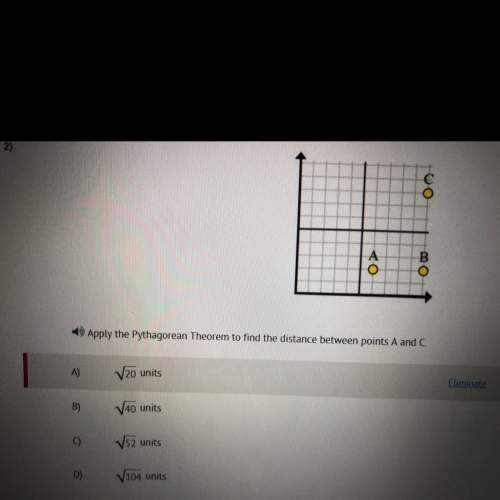
Mathematics, 11.06.2020 17:57 gonzalezant8428
Question: Imagine that a family of three (Alice, Bill, and Charlie) are
playing a card game at home two nights in a row. The chance that any one
of them will win is 1/3. a.) Using A for Alice, B for Bill, and C for Charlie, what
are the outcomes for two consecutive nights of playing card. (Ex. AA
means Alice won the first night and the 2nd night) *

Answers: 2


Other questions on the subject: Mathematics

Mathematics, 21.06.2019 17:30, alexandroperez13
Monthly water bills for a city have a mean of $108.43 and a standard deviation of $32.09. find the probability that a randomly selected bill will have an amount greater than $155, which the city believes might indicate that someone is wasting water. would a bill that size be considered unusual?
Answers: 2

Mathematics, 21.06.2019 22:00, jnkbragg3696
Problem situation: caren is making rice and beans. she can spend no more than $10 on ingredients. she buys one bag of rice for $4.99. beans cost $0.74 per pound. how many pounds of beans, x, can she buy? inequality that represents this situation: 10≥4.99+0.74x drag each number to show if it is a solution to both the inequality and the problem situation, to the inequality only, or if it is not a solution.
Answers: 1

Mathematics, 22.06.2019 02:30, periwinkleaqua72
Ineed on these fraction questions! could'ya me? 1. 3/8 ( ? ) 0.295 a. = b. > c. < 2. -0.770 ( ? ) -4/5 a. = b . < c. >
Answers: 1
You know the right answer?
Question: Imagine that a family of three (Alice, Bill, and Charlie) are
playing a card game at home...
Questions in other subjects:









History, 05.03.2020 17:49

Mathematics, 05.03.2020 17:49




